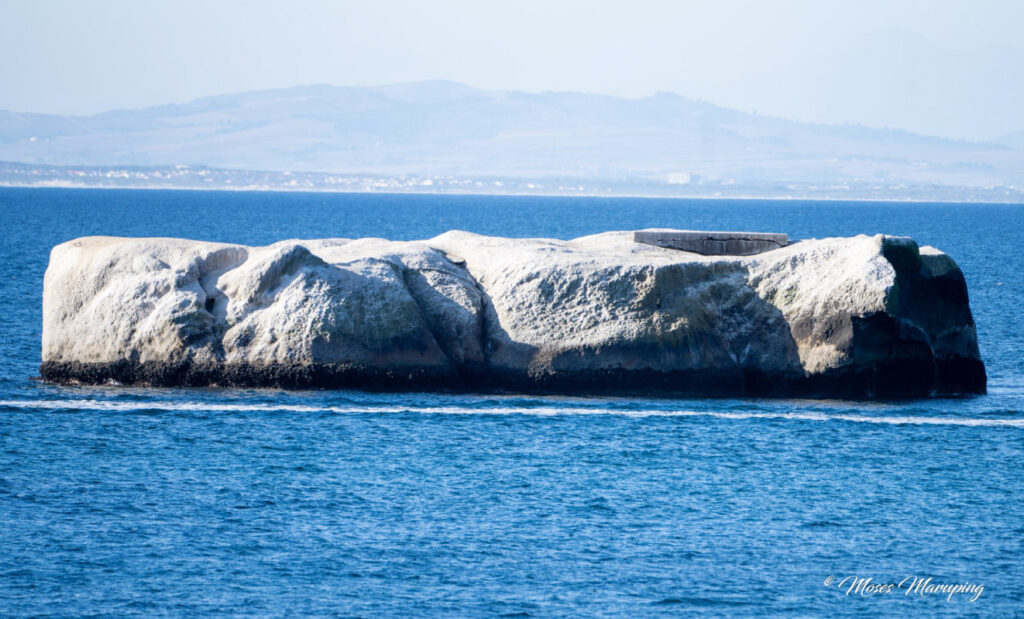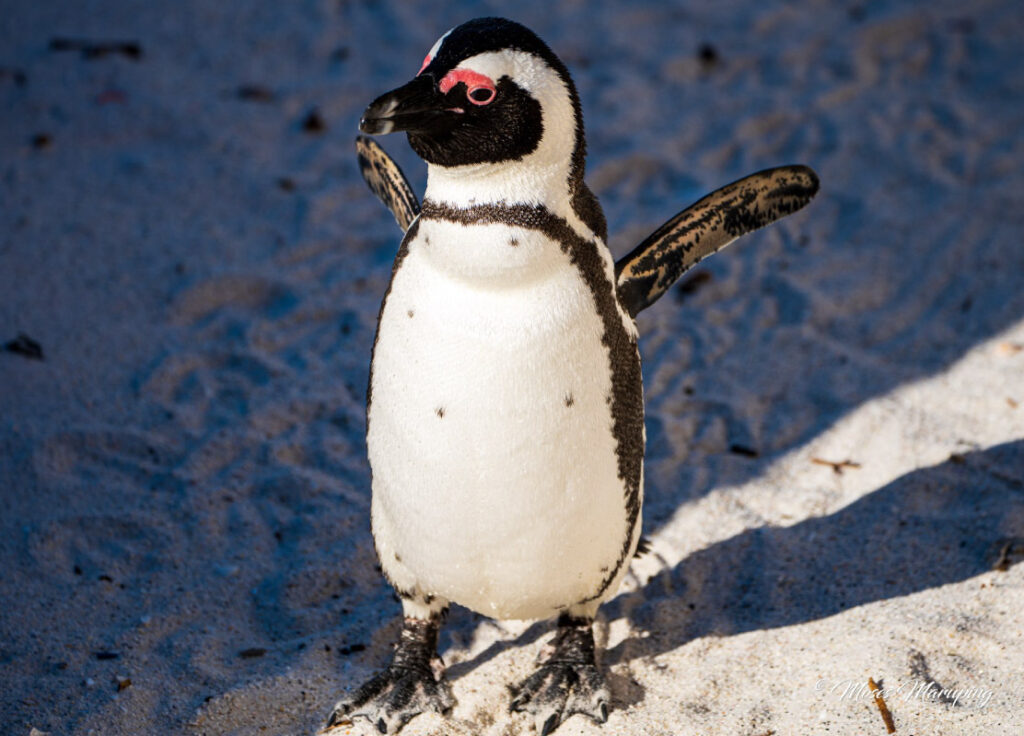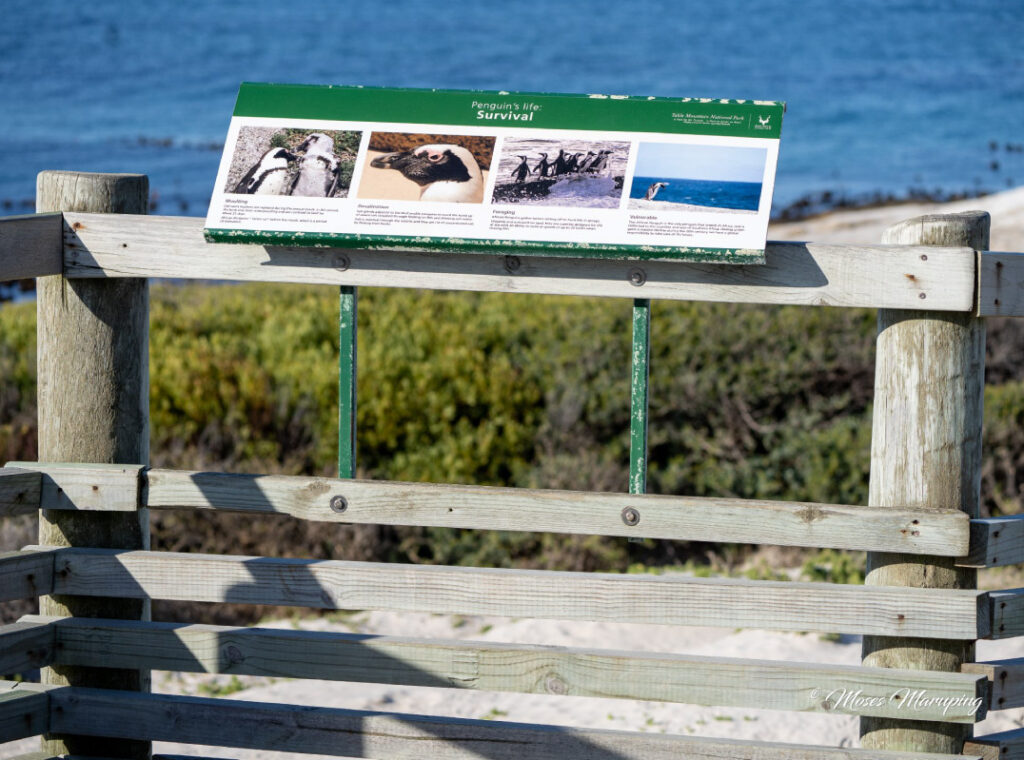Nestled in a sheltered cove between Simon’s Town and Cape Point, Boulders in Cape Town, South Africa has become world famous for its thriving colony of African Penguins and magnificent wind sheltered, safe beaches.
Although set in the midst of a residential area, it is one of the few sites where this endangered bird (Spheniscus demersus) can be observed at close range, wandering freely in a protected natural environment.
From just two breeding pairs in 1982, the penguin colony has grown to about 2 200 in recent years. This is partly due to the reduction in commercial pelagic trawling in False Bay, which has increased the supply of pilchards and anchovies, an integral part of the penguins’ diet.
Bordered mainly by indigenous bush above the high-water mark on the one side, and the clear waters of False Bay on the other, the area comprises a number of small, sheltered bays, partially enclosed by granite boulders that are 540 million years old.
The most popular recreational spot is Boulders Beach, but the penguins are best viewed from Foxy Beach, where boardwalks take visitors to the birds.
Because of their donkey-like braying call they were previously named the Jackass Penguin. Since several species of South American penguins produce the same sound, the local birds have been renamed African Penguins, as they are the only penguin species that breeds in Africa.
Their diet consists mainly of squid and shoal fish such as pilchards and anchovies.
Their enemies in the ocean include sharks, Cape fur seals and, on occasion, killer whales (orcas). Land-based enemies include mongooses, genets, domestic cats, and dogs – and the Kelp Gulls which steal eggs and new-born chicks.
Their distinctive black and white colouring is a vital form of camouflage – white for underwater predators looking upwards and black for predators looking down onto the water.
They can swim at an average speed of seven kilometres per hour and can stay submerged for up to two minutes.
Peak moulting time is during December, after which they head out to sea to feed (since they do not feed during moulting). They return in January to mate and begin nesting from about February to August.
Penguins have very sharp beaks and can cause serious injury if they bite or lunge. The African Penguin is listed in the Red Data Book as an endangered species.
Of the 1,5-million African Penguin population estimated in 1910, only some 10% remained at the end of the 20th century. The uncontrolled harvesting of penguin eggs (as a source of food) and guano scraping nearly drove the species to extinction.







